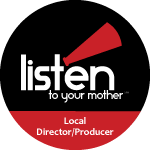Getting published one day is important to me, so when I had a chance to attend a Publishing Institute this weekend, I took it. Yes, I missed two soccer games (bummer. no, really) but I had to go. One of the break out sessions on Saturday was a Query Letter Camp. The presentation was made up of a panel of six agents, and since I was there for it, it's pretty much the same as if you were.
A query is a one page letter sent to agents or a publisher with the intention to create interest in your book. It tells what your book is about, about who you as author are, why the book was written and who the book is for (target audience). The job of a query is to make you and your book compelling.
BUT before we start talking about a good query letter, it's more important to know that before you send anything out anywhere, that you KNOW who you're sending it to. Research them, learn about them: Do they accept your genre? Young adult? Memoir? Thriller? Fiction? Be familiar with the agency and the submissions they seek.
Now that I know you won't sent your Mickey Mouse Goes to Kindergarten picture book to an agency that only accepts romantic fiction set during the Gold Rush, I'll pass on the inside scoop I heard from six agents about what makes them say Yes, I think you're someone I want to know.
1.) For starters, never send a “Dear Agency” letter. You must have a name. If you met an agent at a conference, (Hi, Ann!) remind them of the conference where you met, and when.
2.) Suggested query format:
1st paragraph: word count, title, genre, tell them how you are familiar with their agency.
3rd paragraph: should be about the author. 3-4 sentences at most and include anything that relates to the book.
3.) In your second paragraph, where you talk about your book, be no more than 4-5 sentences in presenting your work. Include protagonist, conflict,
obstacles, setting. Be thorough because the agent has to be grounded in
genre/category before hearing about your story. A query letter is not a manuscript. Do not excerpt your manuscript in your query letter. If it's a memoir, be specific about type: addiction, humorous, transformational, spiritual.
4.) In your third paragraph, the one about you, disclose that part of your life that makes you the person to write this book. That can be education, awards, jobs, life experiences, your area of expertise and why you set out to write this story. If you've written a murder mystery and you've been married to a police detective for 30 years, that's something you want to include. Tell how you can help “move” your book—your website, your social media network, your speaking engagements, anything that shows you have a following.
5.) Write your query in the tone of a published author and present yourself with the professionalism of a published author. That means clean up any hokey twitter handles or funky email names, like HotMamaPockets264. Speak confidently as you wrap it up. There is no need to say, "It's been a dream of mine to be published," because that's a given, I mean, that's why you're trying to sell your book, right?
-------------------
Good querying to us all!









































One of the best sessions I attended at the last Erma Bombeck conference was on the publishing industry, querying, and pitching. It helped that it was put on by an entertaining couple, The Book Doctors. But I still remember tidbits from that session, mainly that one of them pitched his book over 100 times before it got accepted, and each rejection gave him an opportunity to fine tune it a little more.
ReplyDeleteThere was an author there who really stuck with me, "Amazing writing will always find a home.'
DeleteWith your trademark generosity, telling all, fearlessly opening the gates even WIDER. I can't wait to see your book published Alexandra!
ReplyDeleteYou are so wonderful, Anne. Thank you.
Delete